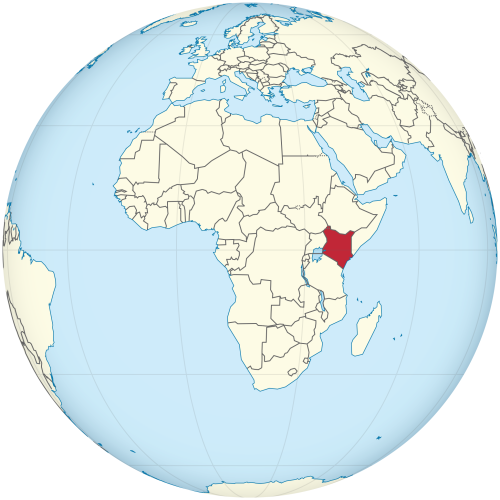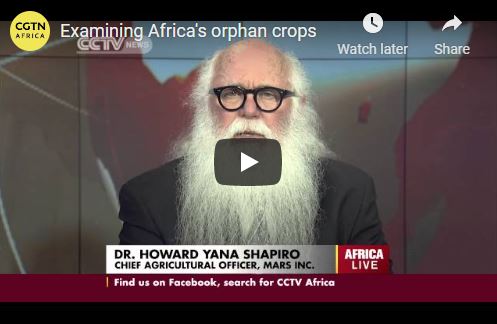AfPBA CRISPR Course in Gene Editing
AfPBA Course for Plant Breeders
African Orphan Crops Consortium (AOCC)
About PBA in Africa
The Seed Biotechnology Center at the University of California Davis offers professional development programs to teach the latest principles and techniques in crop improvement to Africa’s top scientists: African Plant Breeding Academy and the AfPBA CRISPR Course.
These programs are intensive 6-week continuing education programs for practicing crop improvement scientists (i.e. plant breeders and molecular geneticists), designed to build their knowledge base, develop new skill sets, and expand their professional toolbox. The latest proven technologies and approaches are shared along with hands-on sessions to learn the ‘how-to’ of application and the effective strategies for integrating genomics into the crop improvement pipeline.

In collaboration with the African Orphan Crops Consortium (AOCC) and AUDA-NEPAD (The African Union Development Agency - New Partnership for Africa's Development) , the UC Davis African Plant Breeding Academy launched the first session of capacity building for plant breeders in December 2013. The African Plant Breeding Academy (AfPBA) is hosted by World Agroforestry (ICRAF) in Nairobi, Kenya.
To date, the AfPBA has trained and empowered 151 scientists representing 28 Africa countries to utilize genomic approaches for increased efficiency and effectiveness in developing new crop varieties that serve the needs of their local communities. Collectively, these plant breeders work to improve over 125 different crops, 60 of which are crops specifically targeted by the AOCC due to their potential in terms of nutrition and economic growth. These individuals are having a remarkable impact on African agriculture in terms of new improved crop varieties released, important contributions to the body of scientific literature, and quality training of the next generation of African plant breeders and Africa’s future crop improvement workforce. The current fifth cohort is advancing toward a May 2023 graduation.
The AfPBA CRISPR Course involves a collaboration with the Innovative Genomics Institute (IGI) and the International Institute of Tropical Agriculture (IITA) to establish a program to enable African molecular scientists to use gene editing approaches to develop sources of key traits demanded by farmers and consumers in new improved crop varieties. The AfPBA CRISPR Course is designed to facilitate a quantum leap in nutrition, climate resiliency, and sustainability in African food systems and encourage the development of multi-disciplinary crop improvement teams, that will include the AfPBA-trained plant breeders. These teams will be uniquely positioned to spark an explosion of innovation and economic growth across the continent. The AfPBA CRISPR Course will launch on January 23, 2023.
Breeding for Africa's Crops
An innovative and integrated program including genomics, breeding, and practical training will enable breeding of crops for Africa by Africans using the most advanced technologies. Due to the diverse nature of the crops grown in Africa, including leafy vegetables, cacao, cocoyam, millets, fruit trees, and legumes, there is a need to adapt the latest breeding strategies and innovate new ones appropriate for these crops. In the past, little genotypic information was available, so selection focused on extensive phenotyping trials. Traditional breeding strategies were based predominantly on annual grain crops with rapid generation turnaround and simple harvesting and storage of seeds for propagation. In contrast, vegetatively propagated perennial crops require different strategies to evaluate, recombine, objectively evaluate and advance materials. Fortunately, modern technologies such as micro-propagation and meristem culture to avoid disease, production of doubled haploids to reduce breeding cycles, and advanced trial designs and statistical analyses to account for spatial and temporal variation can efficiently integrate genotyping and marker-assisted selection into breeding programs for perennial crops. Breeders must work with a team of skilled individuals to be able to access genotypic and phenotypic information relevant to the crop and apply these selection and propagation methods to create improved varieties.
In a 2013 article, the magazine "Nature" featured how Mars, Incorporated is part of a revolution to tackle global resource challenges and decode the genomes of Africa's orphan crops. Read the Nature magazine article .
More information about the Africa's orphan crops in a December 3, 2013 interview with Dr. Howard-Yana Shapiro.

